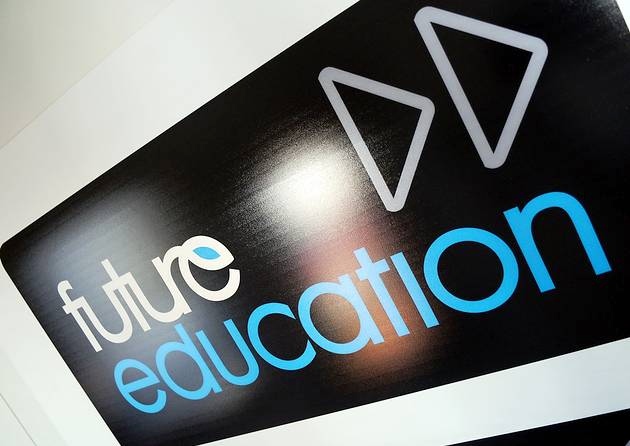Education and Learning in the 21st Century: A Quick Look

A quick look at the current education system and the powerful potential of open online learning in the 21st century. By Devavrat Ravetkar
-
Education is probably the single most important topic for humans. As intelligent social creatures, human beings have valued education since a long time. It is strange that classrooms of the medieval times and present times function in almost the same way. On the other hand, communication, travel, media, medicine have changed enormously. Today's classrooms, like the medieval classrooms, are still designed around lectures- one person speaking to a class of listeners.

-
Use of projectors instead of blackboards hardly brings any change. The student to teacher ratio still remains large hindering personal attention. Lectures remain a one-way communication for the most part. Students end up sitting passively in the classroom, uninspired, even bored and doing a mental countdown of the time remaining for the lecture to end.
-
Students are supposed to sit through the lecture without interacting with one another and each one taking notes on their own. Students could still take out time after the college formalities and exchange notes, have discussions, collaborate on projects and get value from the education. But it rarely happens. Student’s energy levels are low after being busy attending lectures, traveling and writing assignments. And then there are extracurricular activities of a college-life too. Thus, the essential work of self-study is often sidetracked.
-
We follow the factory model in our educational system. We make batches of students according to their age rather than skills and knowledge levels. Everyone learns differently and it is just not possible to provide customized learning in the traditional model. The traditional model does not scale efficiently and we end up enforcing a one-size-fits-all education on students of varying abilities and interests.
-
We also see a rampant commercialization of education. Colleges charge huge tuition fees and much higher donations for admissions. Taking a degree course has become less of an educational endeavor for acquiring knowledge and skills and more of a blind rat race to get marks, a degree certificate and a job. Why do we put excessive stress on marks in the exams where short-term memory is tested mainly, rather than skills and insight that is required to survive in the real world?
-
The exam pattern directly affects the style of learning. Students resort to rote-learning because it works for them to succeed in the exams! And there are a growing number of students enrolling in courses they are not interested in, only because it is the conventional path with larger chances of getting well-paid jobs later on. Forced learning is never enjoyable, and students are deprived of the joys of learning. Also, when a person’s priority is to gain marks and certificates rather than knowledge and skills, they may resort to unethical tactics to succeed in exams. This may then become their way of achieving success at all later times in life. And we all know how we are affected daily by the corruption in our system.
-
Fortunately, we have already started getting solutions to these problems! In Khan Academy, around 10-min long lessons in a variety of subjects have been recorded. Students can rewind, pause and fast-forward. There is a wide range of subjects to study from. Mathematics lessons are complemented with software-based maths exercises. Students can watch a lesson, practice using the exercises and the data of their performance gets automatically recorded- giving a convenient method of assessing their progress.
-
Flipped classroom model has been implemented in schools using these Khan Academy maths lessons and exercises. Students watch lectures alone at their own pace at home and do the assignments collaboratively in the classroom while interacting with other students and the teacher. Teachers’ time of giving lecture gets freed up and they can now give more attention to individual queries of students. This is an excellent example of effectively using technology to humanize the educational experience.
-
Khan Academy videos are widely used by self-directed/lifelong learners as well to acquire skills on their own.
-
And the story does not stop at Khan Academy. There are a growing number of amazing educational resources. Using MIT OpenCourseWare, one can pursue self-directed learning of higher education topics. A number of universities have made their course content accessible to the world through their sites, Youtube channels and on iTunes. Find out more: Google ‘opencourseware’ and visit OpenCourseware Consortium site.
-
The year 2012 has seen the rise of MOOCs- Massive Open Online Courses. These are mostly college-level courses offered for free over the internet. They receive participation of a huge number of learners of all age groups and from all corner of the world. Prominent MOOC providers include Coursera, Udacity and edX.
-
We not only get excellent educational content on the internet but also access to the online educational community. Google, Wikipedia, Facebook, Quora, Stack Overflow, Udemy are some of the places where one could start. MOOCs facilitate bonding of people from around the world, as they indulge in exchange of knowledge and sometimes even collaborate on projects.
-
This is the self-directed, passion-driven and project-based model of open online learning in the 21st century. It provides a high quality and wide range of educational content. Learners can now experience the joy and value of learning, irrespective of their age, location, financial status and educational background. “Collaborate with People, Compete with Yourself” can be the motto of the 21st century self-directed, lifelong learners.
-
Further references:
-
List of Online Learning Resources. (The description contains a long list of excellent websites that provide learning content and tools for free)
- Have a look at the Mindmap on Flaws in our Education System and New Possibilities in Learning that the author made in August 2012. (You can navigate the nodes sequentially using the Tab key on your keyboard)
-


